2022 was a good year. It wasn’t great, thanks to the crippling drought that began on July 1 and persists to this day, but natural disasters notwithstanding, it was a good year in which there was much to be thankful for.
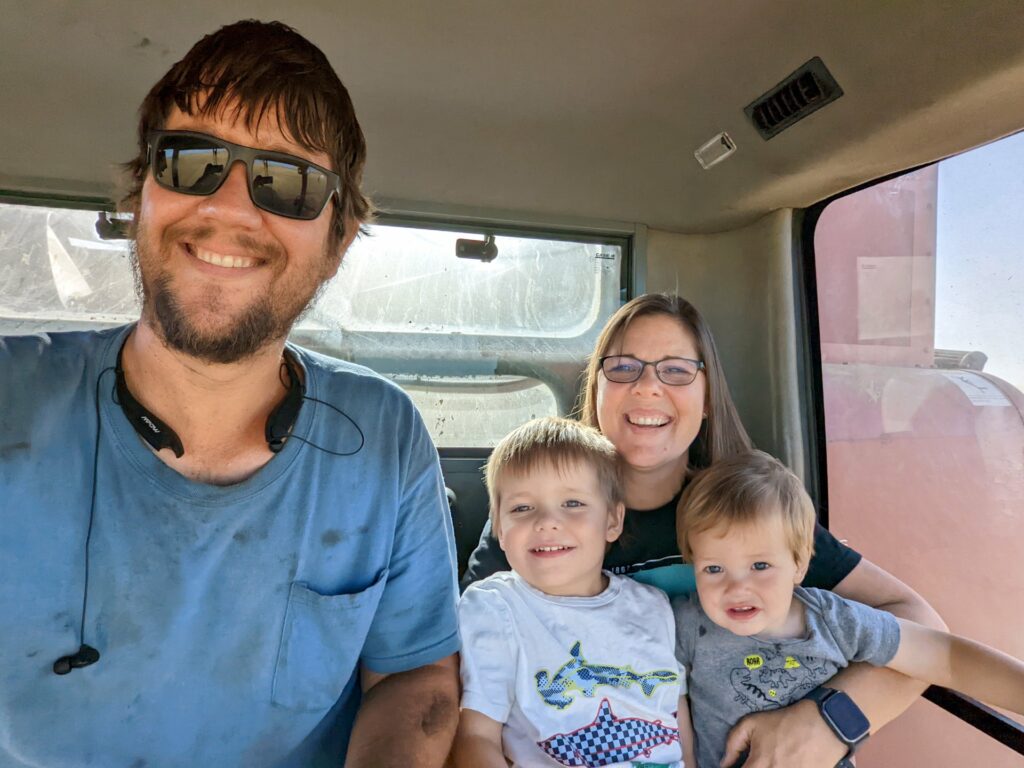
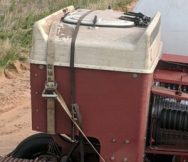
In the summer of 2021 it was all I could do to finish planting with my planter — the last couple hundred acres found me leveraging tire tubes and ratchet straps to hold the air pressure in the seed boxes, so while I was white-knuckle hoping it didn’t explode I ordered another planter.
The new planter is a 25-year-old 16-row, which was an upgrade from my 30-year-old 12-row. It took a lot of work and some help from Wayne and a hired bead-runner for some welds that were above my skill level, but we got it working in time to start planting beans in April. We also installed an electronic flow monitor for liquid fertilizer, allowing me to see any flow restrictions at the row level from a tablet in the cab. I kept planting soybeans until the wheat was ready to cut, including enough custom soybean acres for neighbors to pay for the planter this first year.
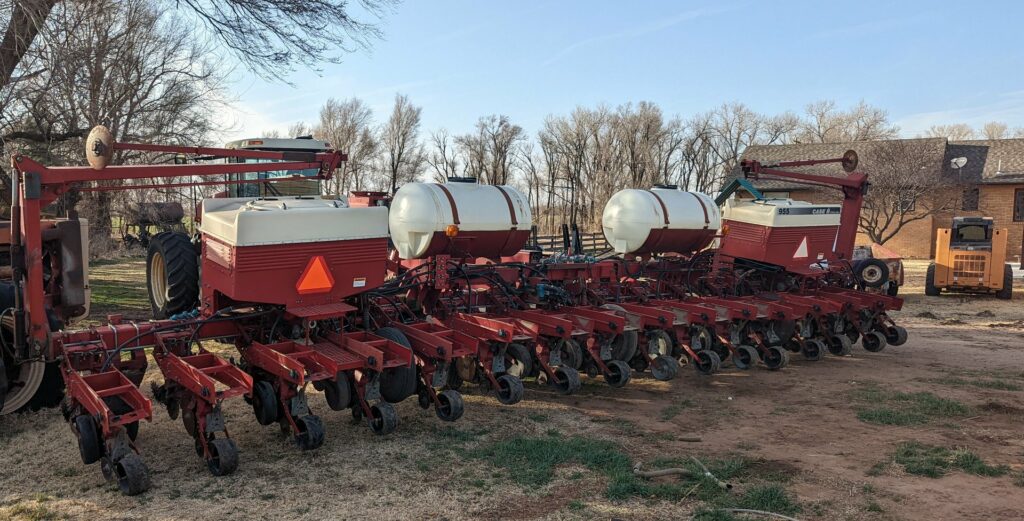
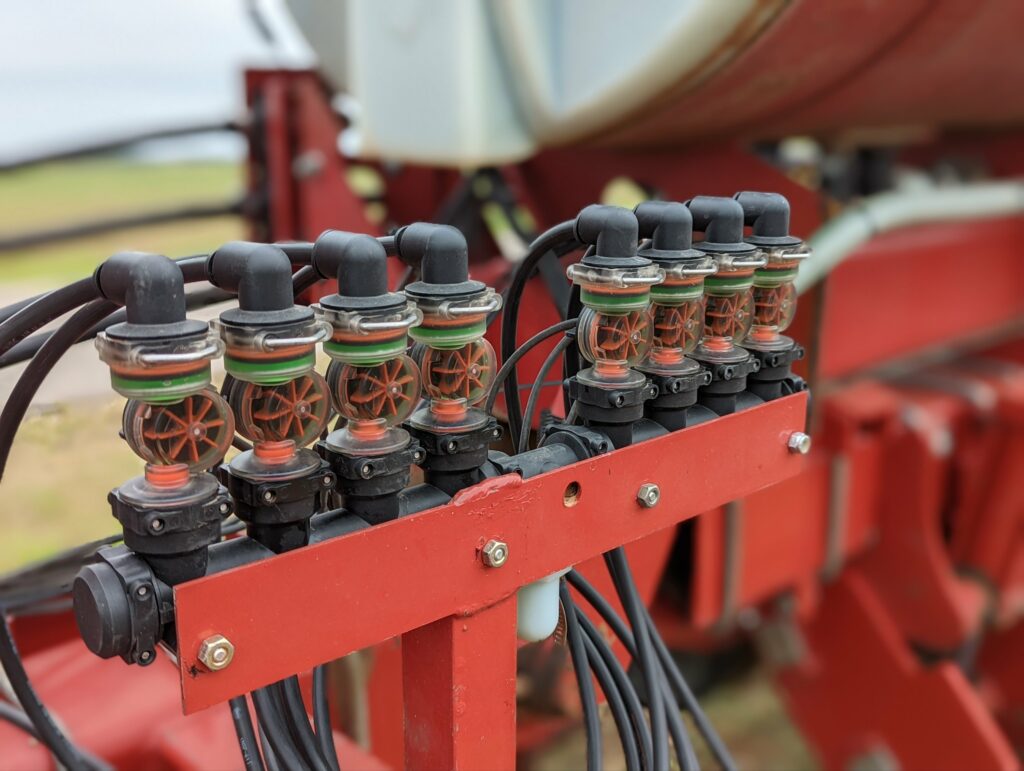
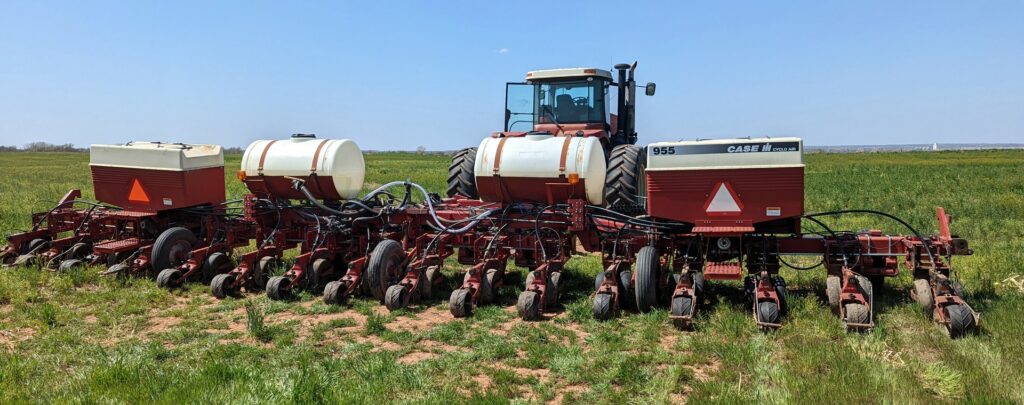
Wheat harvest was relatively uneventful, though we’re still running only one combine due to a supply chain backlog that has yet to produce a replacement rotor for the old machine. It was the first year using FarmTRX, a third-party yield monitor with GPS that produces really nice yield maps. While the wheat looked the best I ever remember seeing in March, yields turned out just average because it didn’t rain much in April. With Wayne’s help we knocked out around 600 acres of wheat in 8 days. We’d have done it in 6.5 if it weren’t for a broken rotor gearbox mount that took us an entire day to fix.
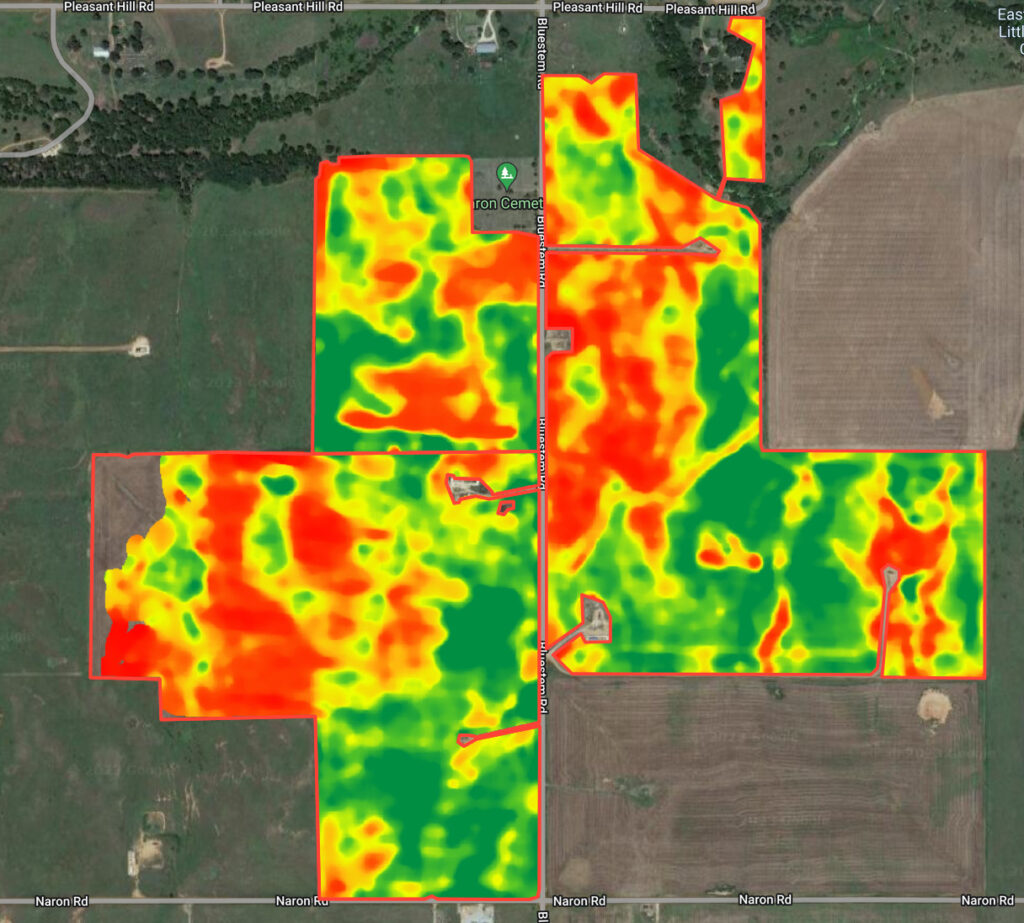
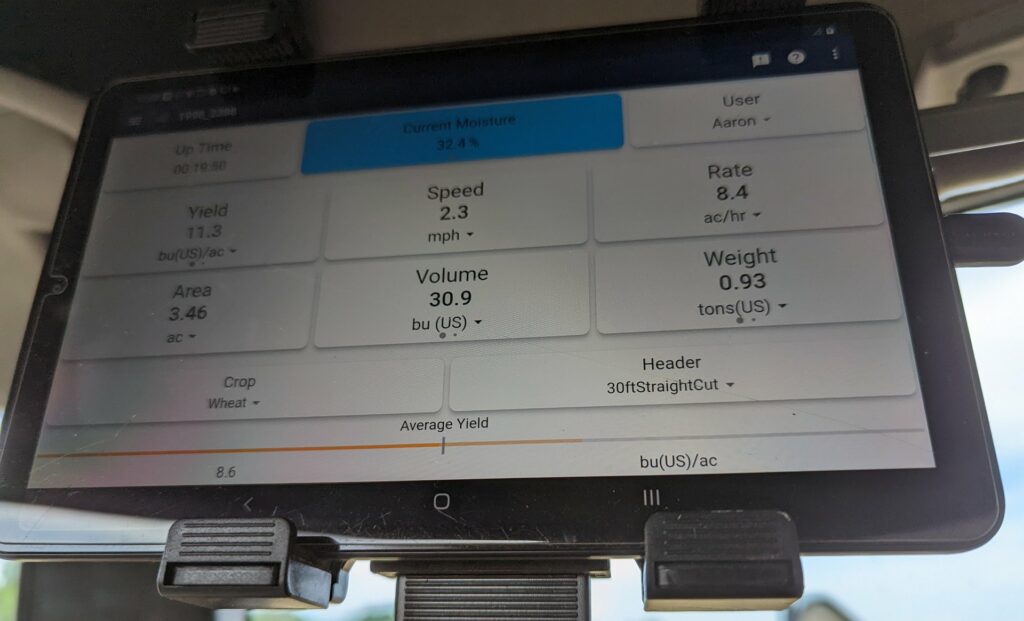
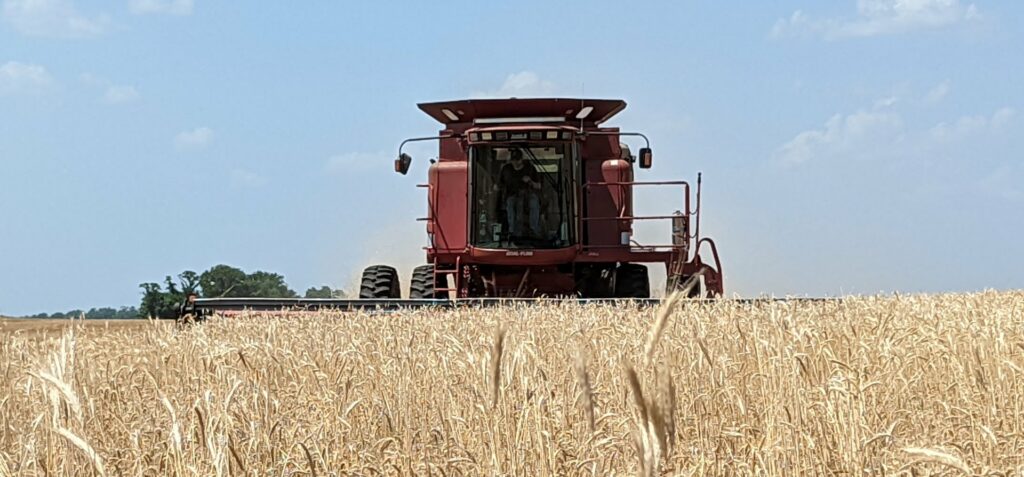
After harvest, it kept raining so I kept planting double-crop milo on nearly all the wheat acres we’d just cut as well as several hundred acres of milo and feed for neighbors.
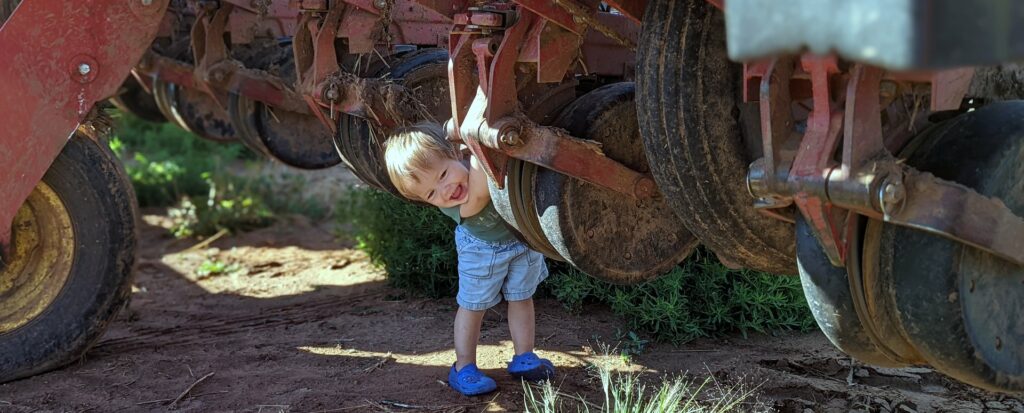
As soon as I finished and put the planter away, the rain stopped. It didn’t rain much at all from the first week in July until harvest. My weather station on the roof at the farmhouse logged just over an inch total from August through October, and most of that came in little showers that barely wet the ground much less soaked in to be agronomically useful.
The artesian well by the house has only stopped twice in my memory. The first time it stopped was when I first started farming in the drought of 2013-2014 and the second time was on September 15 of this year. It’s still completely dry.
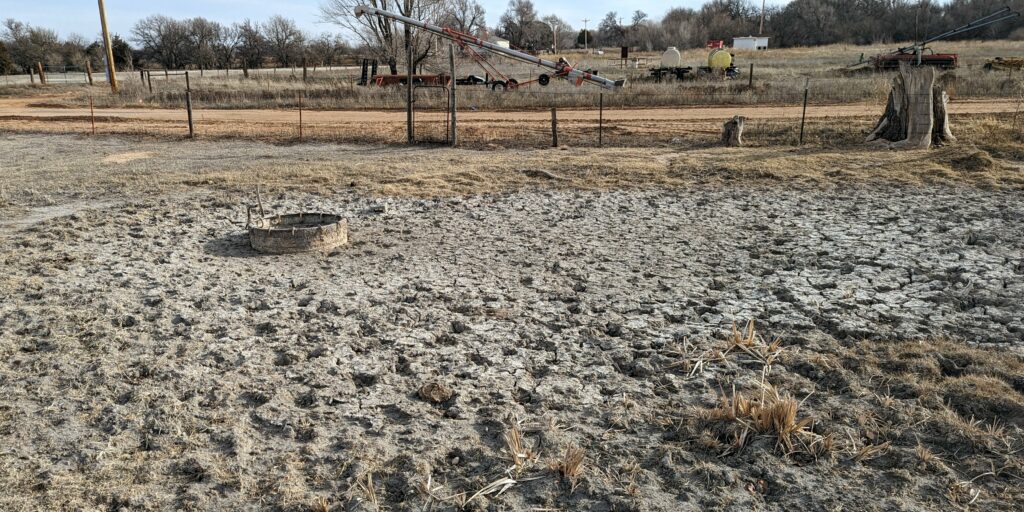
Fall harvest went well, though the yields were understandably disappointing. Not a single soybean field performed well enough to evade the insurance claim. Sadly, double-crop milo is not insurable in this part of the state, so the milo project was a fairly severe money loser this year. The FarmTRX worked well on the one combine for wheat harvest, so we put a second one on the other machine. Since the rotor doesn’t shake at the slow speeds of fall harvest, and since Wayne is becoming a very good combine operator, we were able to run two combines for pretty much all of the 1400+ acres of soybeans and milo. We were finished by the first week of November, since it didn’t rain to slow our progress, which is a far cry from the December 1 finish in 2021.
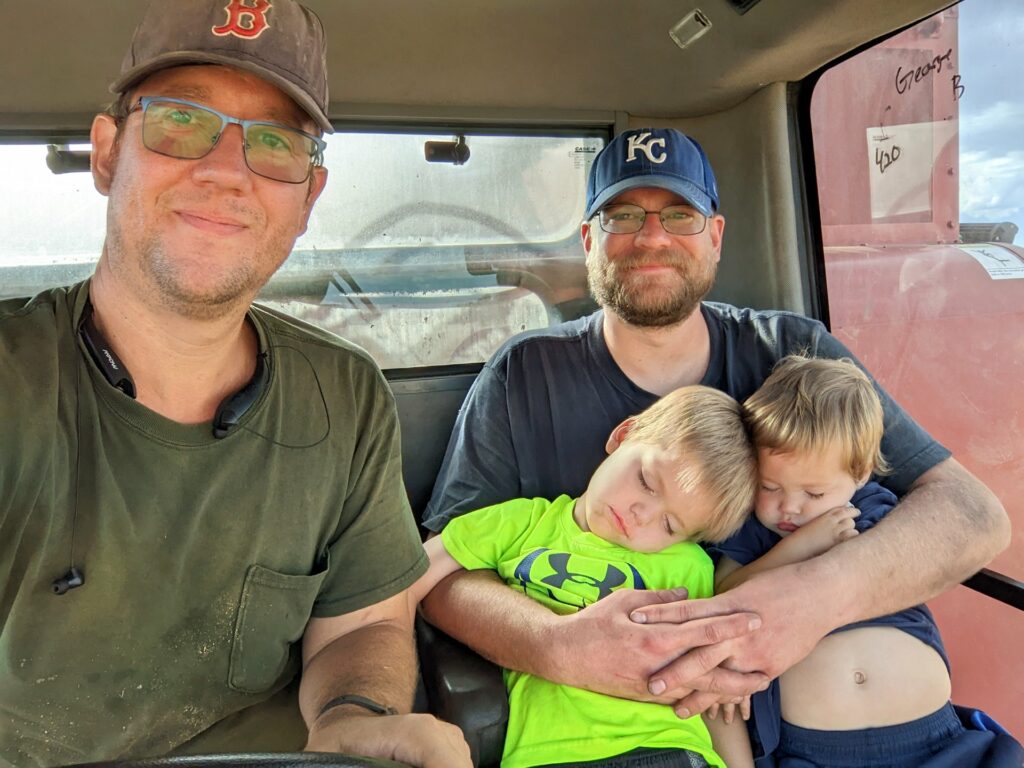
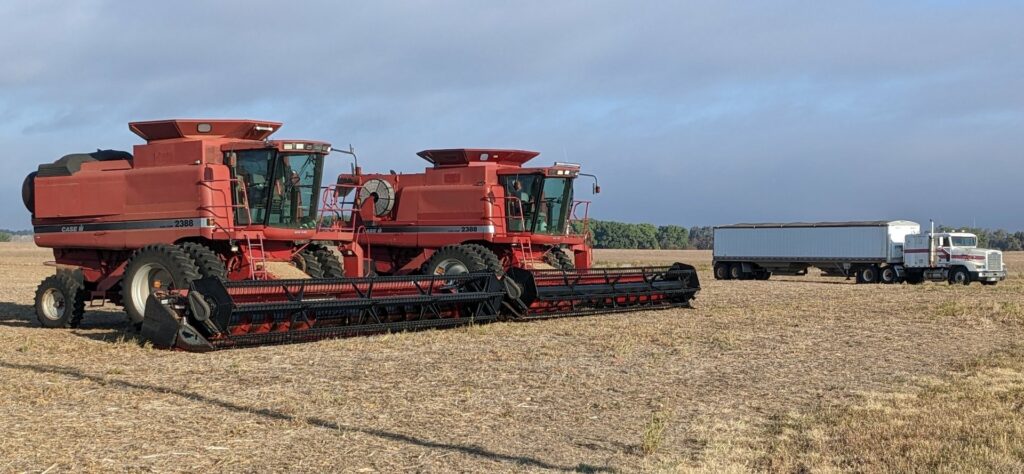
We did have a small scare during fall harvest as Wayne and I were cutting on the Hunter place. We started noticing smoke that looked disturbingly close to the home place. I ended up parking the combine and running home to double check and found a fire in the process of taking out some of our soybeans and the western half of the Cox pasture. It was started by a neighbor who was swathing pasture and quickly spread to our fields. The local fire department put it out as quickly and efficiently as they always do, but not before it took about 10 acres of beans and 30 acres of pasture.
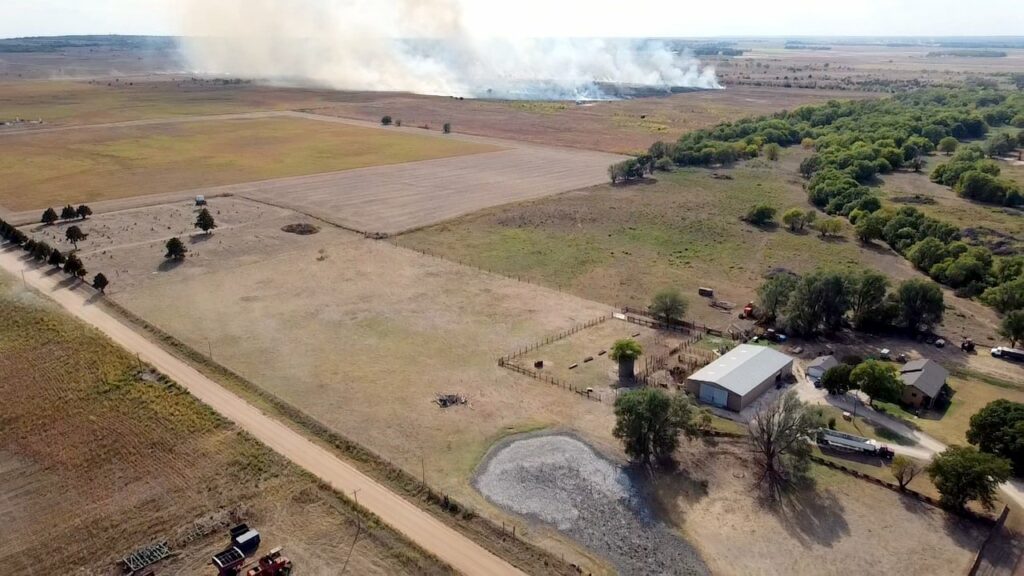
Normally this time of year we have a couple hundred steers on wheat pasture in Oklahoma. However, because it’s been so extremely dry there really isn’t much in the way of wheat anywhere around that’s good enough to graze. We sold all our stockers in August as planned, but we have yet to restock. We’ll be looking at hopefully buying once we start to see pasture green-up. Hopefully by then I’ll have an opportunity to install the new (to me) hydraulic chute in the corrals that I purchased a year ago.

With a little free time at the end of the year thanks to an early completion to harvest, I went down the rabbit hole of building a Johnson-Su Bioreactor. In a nutshell, research from a molecular biologist from New Mexico State University has shown some soil health and nutrient absorption benefits from the introduction of fungus to cropland. The bioreactor I built will compost the wood chips, leaves and straw for a year and produce a fungally-dominant compost from which I’ll make an extract and apply it in addition to or in place of fertilizer. I’m not sure how much I believe everything that’s been said about it, but it’s at least worth a few small trials. If half of what they say is true, it might lead to a drastic reduction in the amount of synthetic fertilizer I apply to each crop.
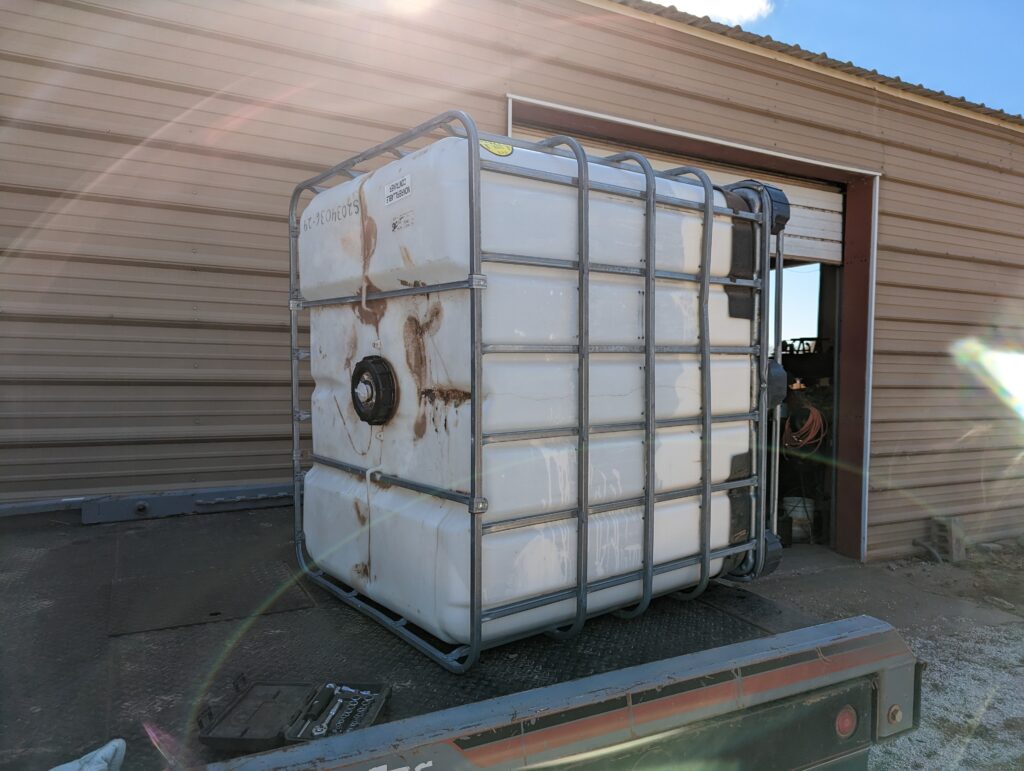
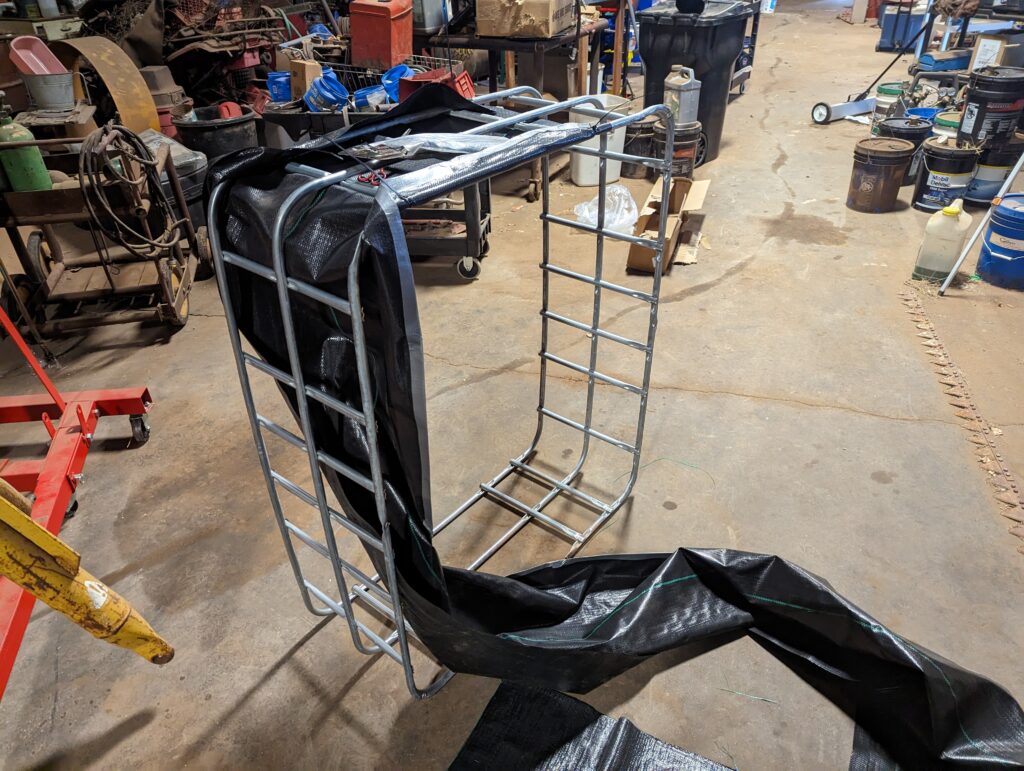
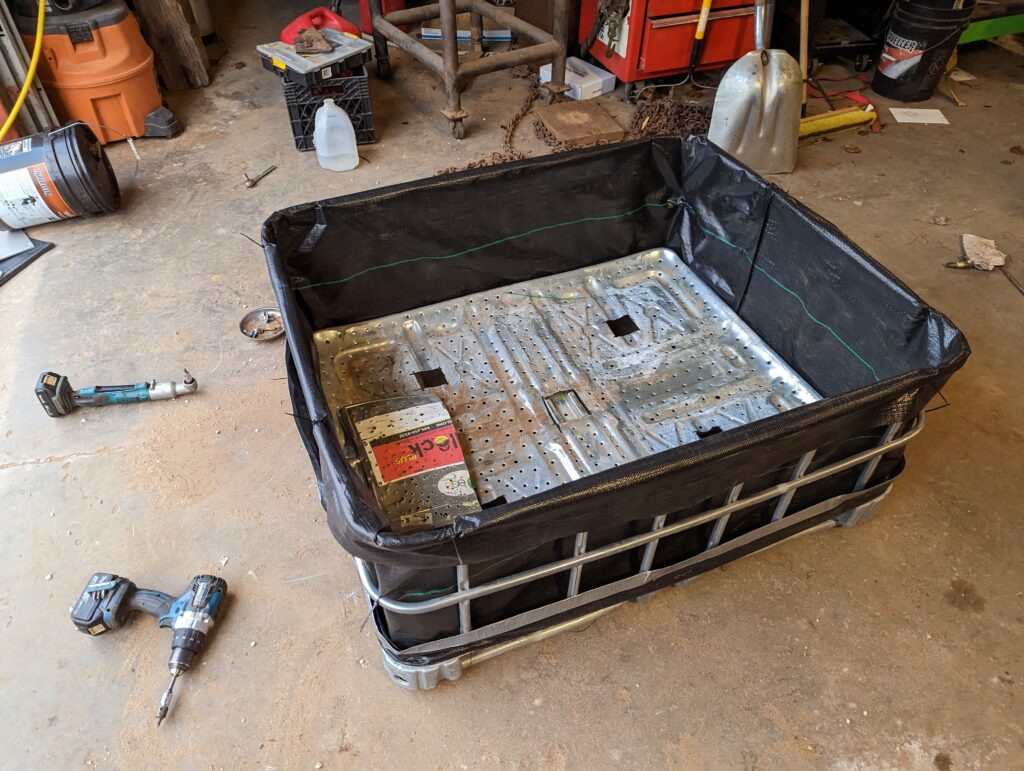
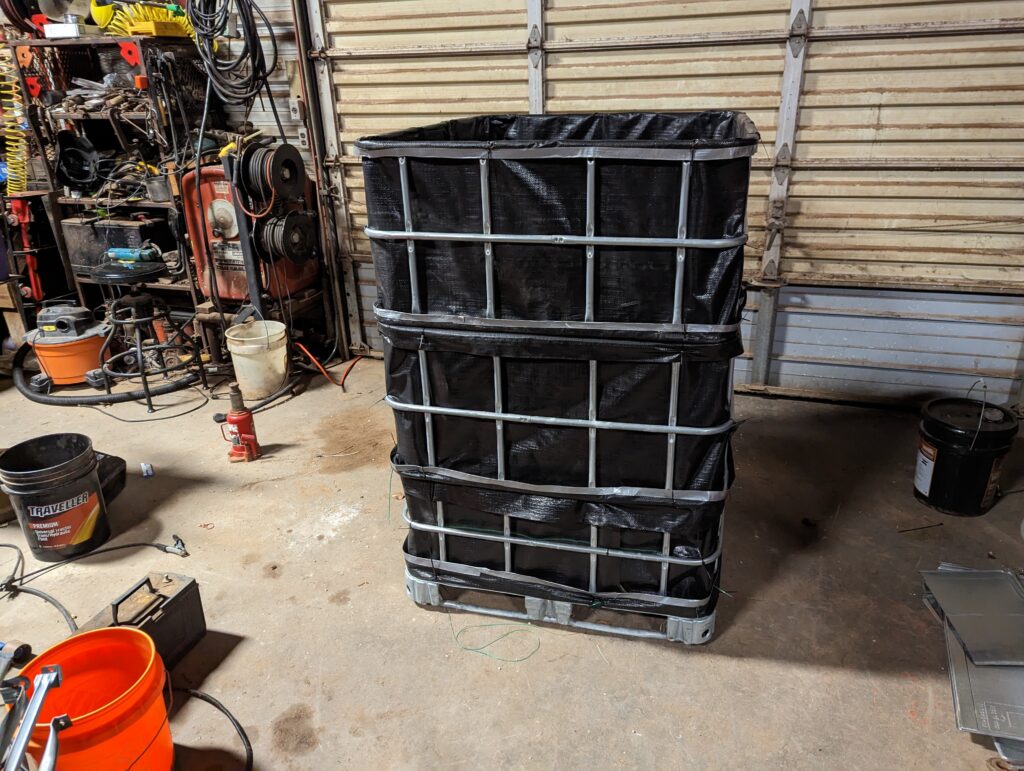
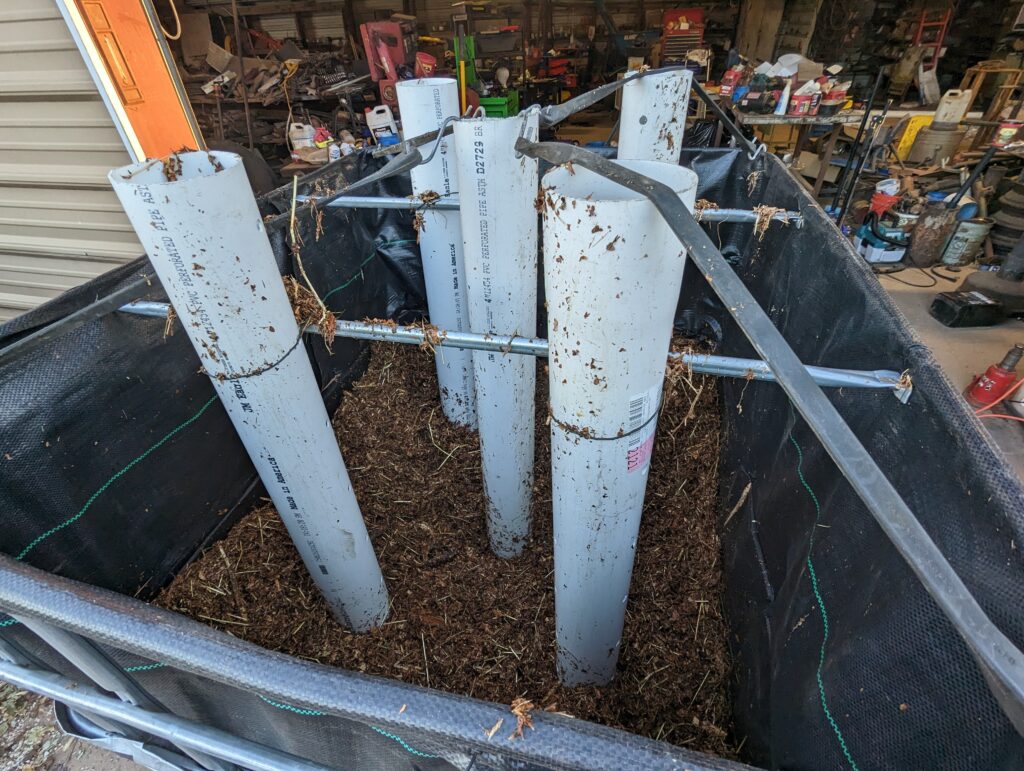
Lastly, I got an unexpected call from NRCS in December. I was told that the county conservation board had elected me to be the 2022 winner of the Kansas Bankers Association Conservation Award. I was told it was for the work I’d done between 2015 and 2021 to convert the farm from conventional tillage monocropping to no-till practices with crop rotation and cover crops. I honestly don’t know much about the award, which will be presented at a banquet later this month, but I’m just hoping I get a certificate that I can hang on the wall alongside the one Grandpa won in 1989.
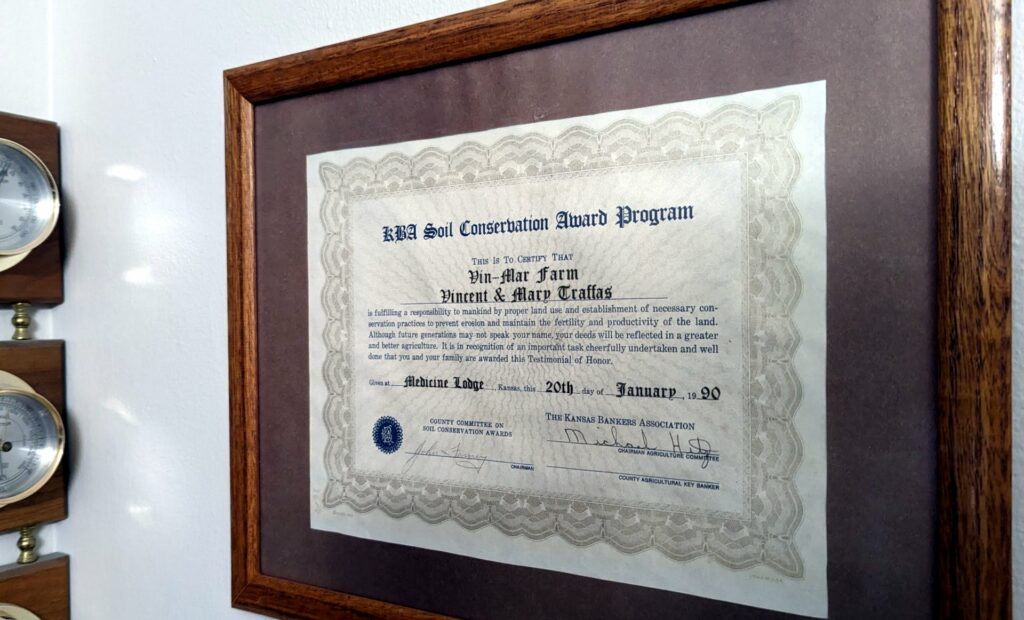

Comments are closed.